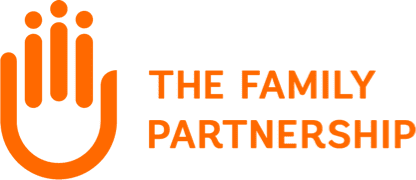National Pilots Begin for Brain Science-Informed Curriculum

National pilot sites will begin testing a brain science-informed curriculum developed by The Family Partnership this fall.
The two-generation (2Gen) Executive Functioning Across Generations© program model is designed to boost children’s and their caregivers’ executive functioning and self-regulation skills for greater success in school and life.
Frontiers of Innovation (FOI), the R&D platform of the Center on the Developing Child at Harvard University, is supporting the national pilots in Minnesota, Wisconsin, Nebraska and Delaware with funding from the Hemera Foundation. The goal of FOI is to accelerate the development and adoption of science-based innovations that achieve breakthrough impact at scale for young children and families facing adversity.
The Family Partnership developed and successfully piloted the Executive Functioning Across Generations© curriculum with its preschoolers and caregivers from 2017-2019, leading to national interest in further trials. Last year, The Family Partnership and three Children’s Home Society of America organizations were awarded a planning grant by FOI. Together the organizations attended a workshop on the IDEAS Impact FrameworkTM, a science-based innovation approach to program development, testing, and evaluation, and used that experience to develop precise evaluation measurement strategies for the original curriculum and the home visiting and parent education adaptations.
Virtual Pilots Begin October – December
Now TFP, Children’s Wisconsin and Nebraska Children’s Home Society will begin testing virtual delivery of the curriculum with 10 families each in their respective home visiting programs. In 2021, Children and Families First of Delaware will pilot a virtual parenting group adaptation with 10 families.
“Families may feel more isolated during the COVID-19 pandemic, but we are innovating to make sure children learn the essential skills needed for healthy development, while parents are safe and supported in their role as their child’s primary caregiver,” said John Everett Till, VP of Strategy and Innovation at TFP. “By working with children and parents together, home visiting and parent education staff can reinforce the ‘serve and return’ interaction skills that help build executive functioning – the core capabilities that ’stick’ with children and families for life.”
The upcoming pilots of Executive Functioning Across Generations© sets the stage for eventual use of the program model in preschools, home visiting programs, and parenting groups locally and nationally to reach high-risk families and promote healthy development for more children.
Why Executive Functioning?
Research shows that adversity experienced in early childhood can have a cumulative negative impact on a child’s brain development if these experiences are not buffered by a supportive relationship with an adult. Adverse Childhood Experiences (ACEs) within the family include child abuse, neglect or household dysfunction (such as seeing a caregiver struggle with mental illness, addiction, or incarceration). In addition, toxic stress can occur from external factors such as community poverty, neighborhood violence, racism and discrimination, and/or a lack of family services and resources
The Family Partnership curriculum intervenes to build executive functioning – the essential skills that everyone needs to stay on track with goals, imagine consequences of actions and inhibit impulsive behavior.
How the Curriculum Works
The Family Partnership curriculum, developed by Dr. Chris Wing, focuses on language to build executive functioning in both parents/caregivers and children. The curriculum first establishes “Internal State Words” for thoughts, feelings, sensory perceptions, physical sensations and moral concepts. As children learn, they can use these words to identify and express themselves and develop personal narratives about their experiences. As parents’ skills related to executive function and self-regulation increase, they are able to model use of these language skills with their children. The parents also increase their ability to recognize and respond to their children and provide supportive relationships.
For more information contact:
Stephanie Goodwin
Email: sgoodwin@thefamilypartnership.org
